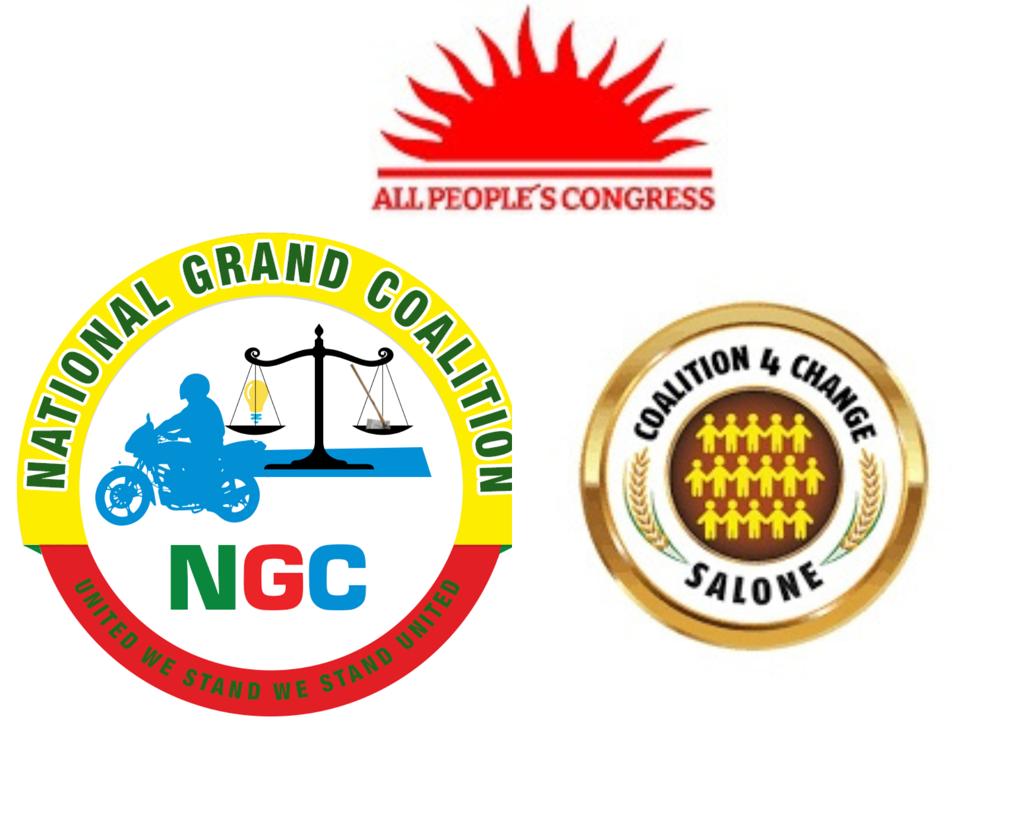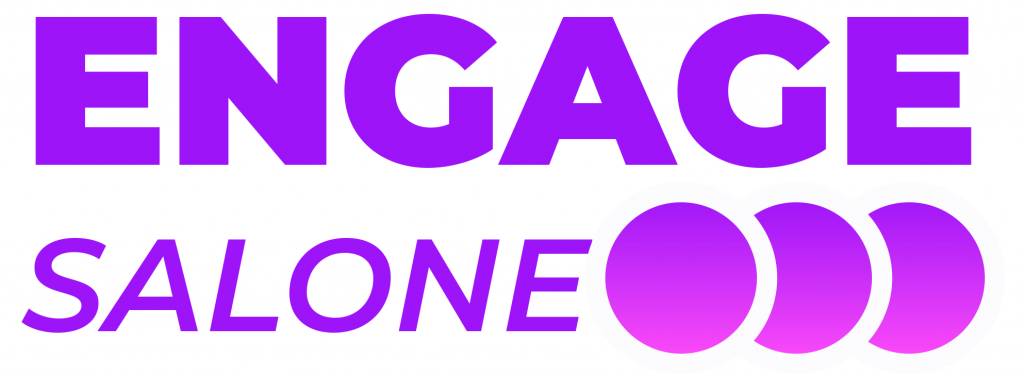Sierra Leone’s mainstream opposition seems to be lost in a political labyrinth. While it is not our business to help them navigate their way out, we acknowledge the important role of the opposition in a democracy. And therefore, it will be helpful to try and understand the behaviour of the mainstream opposition and the possible reasons for their inability to adequately serve as a counterweight in a multiparty democracy.
We are talking about the All People’s Congress (APC), the National Grand Coalition (NGC) and maybe the Coalition for Change Party (C4C)—all of them with seats in parliament. The APC, which is the largest of them all and were in power four years ago, is at war with itself and they seem to be leaderless, voiceless, toothless and also suffering from an auto-immune disease. This affects their ability to serve as a powerful opposition despite their numbers in Parliament and on the streets. The NGC came out of the 2018 elections with a very bloody nose that they have not recovered from since. The leader, Kandeh Yumkella, who is also a member of parliament seems missing from many important national conversations. Chairman Denis Bright has been trying to represent his party, but he is among those that have been harassed and locked up and he has been quiet since. What can we really say about C4C as a party in parliament? Nothing really, except that it is hard to tell whether they are in opposition or allied to the ruling party.
We would be unfair if we do not single out a few opposition politicians who have not relented in calling out the government on many issues of national concern despite the increasingly hostile political environment. Femi Claudius-Cole, who runs a small political party with no seat in parliament. Actually, people know her more than they know her party because she is never quiet on national issues. The Mayor of Freetown, Yvonne Aki-Sawyerr has been juggling her role as mayor of the capital and as a leading member of the opposition APC. She is one of those who have had to endure the prevailing political environment. There are a few more and from time to time, you hear them cry out from the wilderness but not organized enough and therefore, not loud enough. For some in the opposition, they lack credibility because they were part of the previous administration and people have not forgotten them and how they performed. This is the state of the mainstream opposition in Sierra Leone—moribund.
As we do with many of the issues we address, let us step back and zoom out on the big picture to help us appreciate the behaviour of the opposition. Firstly, the opposition is part of the broad political class and that class in Sierra Leone is more opportunistic than political. Many go into politics not because they want to do politics but because they figure it is the easiest route to state resources and the shortest way to their own prosperity. So, when you have a political class of this sort, you expect them to be partisan but not political. Many of them do not have the mental stamina, courage and conviction of a politician and that’s probably what sets them apart from the likes of Claudius-Cole, Bright and Aki-Sawyerr. Many of those in the APC, including those in parliament, came into politics at a time when the party was flowing with the proverbial milk and honey. They do not understand political struggle and do not appreciate that the proper functioning of democratic institutions depends heavily on the type of government as well as the ability of the opposition to be a counterbalance.
Secondly, political parties in Sierra Leone fail the institutional and ideological tests. These political parties have existed since independence but have still not been able to evolve into functioning institutions. They only demonstrate a semblance of functionality and organisation during elections and when they are in power. When they are in governance, they use their position to funnel state resources into their parties and because everyone is eating, everyone has a reason to behave. The moment they lose power, the money stops flowing; everyone disappears, party offices become as quiet as a graveyard; and the next thing, they disintegrate into factions and fights break out—like the one the APC is going through today. The SLPP also had its moments of chaos when they were in the wilderness and for very similar reasons. These fights are obviously about power and scramble for control, but at the very bottom lies a systematic failure.
Democracy cannot thrive in the absence of institutionalised political parties. In a political system with an executive presidency, there is always a threat to the other arms of government and that is one reason you need a strong opposition to check and balance through parliament and other legal avenues. Do we have that in Sierra Leone? No! What we have is a band of people who take over a party, manage to win an election (not by the effectiveness of their campaign, but because the people are angry with the incumbent) and then dominate the entire political space. You cannot find clear ideological lines between the SLPP, APC and other parties in parliament as a matter of fact. And that these parties have been able to survive over time is not a sign of institutionalisation. They have been barely surviving opposition as they stand on the revolving doors of power, hoping their time will come and the sun will shine on them.
The ability of opposition parties to play their role also depends on the democratic environment. And this takes us to the third explanation for the predicament of the Sierra Leone opposition. When the ruling party dominates the political space, it indicates the level of control and misuse of state resources and the authoritarian tendencies of the state. We have seen this play out over time and the result is always a lame opposition that surrenders to the other half of the political elite that is in power. Consequently, accountability and democracy are sacrificed on the altar of primitive politics. And because of these weaknesses, the state has become emboldened in its experiments with repression and there is nothing that the opposition can do.
Considering these factors, we can agree that being in opposition is a difficult job. However, it is part of multiparty politics and those who choose to go into politics must acknowledge the challenges of winning and losing and live with that. They must, first of all, develop the mental stamina of a politician, have a sense of purpose and embrace politics with all its baggage. Politicians cannot only be loud and boisterous only when their party is in power and enjoying the benefits of being in governance. The way the opposition behaves and performs shows their readiness for governance. Their ability to stay organised, hold the government accountable and provide credible alternatives to plans and policies can go a long way in showing the people that they are serious and ready to govern. The mainstream opposition has failed terribly on this and unfortunately, they seem unaware.
Whatever you are up to in the coming days, have a nice weekend.
About The Author
- Engage Salonehttps://www.engagesalone.org/author/eng21_admin/
- Engage Salonehttps://www.engagesalone.org/author/eng21_admin/
- Engage Salonehttps://www.engagesalone.org/author/eng21_admin/
- Engage Salonehttps://www.engagesalone.org/author/eng21_admin/


